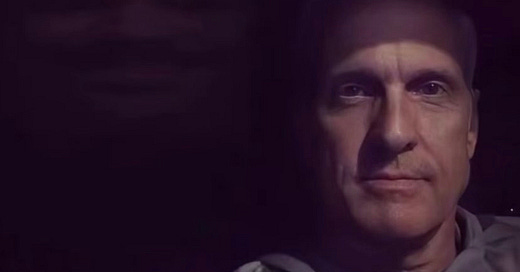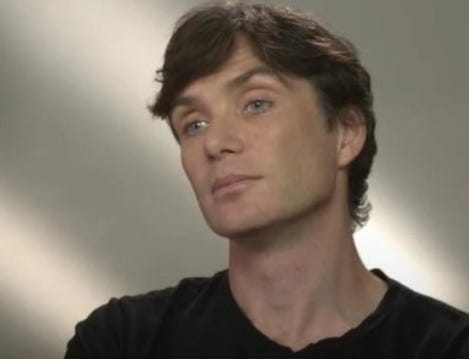A new project started in my masters, and it has not been easy. We had the first presentation to our client on Friday, and I might or might not have cried in the bathroom after. :D Fml.
I have not been performing well in this project.
The research phase was messy. In my masters, we work with clients on some problems they bring in. The first phase is research - we begin with understanding the problem and the context. We typically break our research into 4 streams: User, Trend, Market and Brand. From there, we draw insights, define the problem, identify opportunities and propose solutions.
In the first project, I was assigned to User Research. With my background in Sociology, I jumped straight into the challenge, operationalised our tasks and moved fast. I knew where we had to go as a team and the steps to get there.
In this second project, I chose to do Market Research, because I had never done this before and wanted to build some muscles. It turned out to be much harder than I thought. I have never felt so lost - I did not know the direction we were heading and what we had to do. Usually I’m pretty good at operationalisation, but this time I completely lost control. Because how tf do you operationalise something you don’t know how to do??
I lost control of my progress, the team’s progress and the quality of work we were delivering. There were some moments where our outputs met expectations, but as a whole, our performance was inconsistent. One moment we were delivering results with speed, the next moment we were in limbo.
I’ve been feeling so inadequate because of our inconsistency as a team, and the fact that I lost control of my performance, learning and progress.
My feelings of inadequacy also comes from how I feel like mentors and peers are expecting something from me, and I keep failing to deliver. Based on my performance in the first project, which was not amazing but relatively decent, I feel like people have expectations of my work this time. But having lost control in unknown waters, I keep failing to deliver high quality work. This might be my own projection of fear of judgement, and no one is actually feeling anything about me lol, but idk man it’s tough. I feel like I keep disappointing people. I’ve been crying a little more these days.
A mentor at uni said to us, though:
“Design is not about what you know, it’s about how you react to what you don’t know.”
I think this makes sense. In work, I won’t face the same problem every time, so I can’t expect to be able to operationalise and stay in control only when I know exactly where we’re heading and how to get there.
Unknown water is the norm. In the real world, I’ll be thrown into problems, contexts and tasks I’ve never faced before. It’s up to me to manage my approach. Will I panic and lose control of the steering wheel? Or will I manage the uncertainty, try to figure out the context, co-evolve with the problem and stay grounded and purposeful in the execution?
After some reflections of where things went wrong, I think what helps is to begin with a purpose in mind, then keep reflecting on and reiterating that purpose as we go. For instance, when I’m doing market research, I need to stay grounded in defining what we’re trying to figure out, constantly reflect on the direction we’re heading, and reiterate our execution accordingly; instead of starting with a vague idea in mind, get stunted the moment our path deviates from our initial imagination, lose control and just completely let go.
I need to stay grounded while also co-evolve with the problem.
Perhaps, I have been approaching work with a conquering mindset. I want to overcome obstacles as quickly as possible, come up with the perfect solution - so I can prove that I can perform or my work is high quality. But honestly this urge to solve problems quickly comes more from ego and insecurities more than anything else. Because truly, why do I need to overcome things that fast, or have the perfect solution at all?
In reality, meaningful problems are rarely static. As I learn more about them, they will take on different shapes and forms. As I interact with the problems, new information will emerge. The context will evolve. The best path forward will transform.
So a more sincere approach to solving problems would be to understand them - complex as they are - while knowing that they will evolve and so will the path forward; instead of trying to come up with a perfect solution quickly then forget about it.
As I shift into this mindset, it becomes easier to ease into unfamiliar problems and contexts. Instead of being convinced that my ability to solve something - or not - defines my capabilities and self worth.
Again, my habit and urge to solve problems right away come less from genuine care for the problem and the context, and more from ego and insecurity. I’m unlearning this.
But as I embrace unknown problems, a problem emerges: I will feel very, very inadequate.
I will feel like I’m wearing a shirt twice my size. Because the problems are unknown, I will feel very clumsy trying to understand and solve them. The learning curve is steep.
As someone with a conquering mindset in work and deep-rooted insecurities about underperforming and self worth (oldest daughter type shit), it’s not easy to feel inadequate and clumsy in work.
I’m more used to being the teammate, the employee you never have to worry about.
It’s not easy to transition from such hyperindependence to sitting in feelings of inadequacy, feelings of being unable to handle it, feelings of constantly needing to reach out for help, and disappointing the very people whose help I reached out for and not being able to utilise their help in productive ways. (The amount of times my solutions have been called “superficial” because they’re too theoretical and not tangible enough is truly a pain, but hard truth over empty praise any day i guess. #realshit #fml)
Even when I get help from mentors and implement their advice, I still run into stupid mistakes. This might be me projecting but when they look at my results, there’s this look on their face which I interpret as the “disappointed Cillian Murphy” face.
But the truth is, I am clumsy and inadequate. After all, these are new problems I never solved before. Only now I am learning to navigate unknown waters. Although the learning curve is steep, what matters is that I am on a learning curve.
The only way I can learn and improve, is to start - to be inevitably clumsy and inadequate.
I can’t just dream of being a great designer and solve meaningful, big, complex problems. I actually have to get started and build my muscles. Progress comes from starting.
Even if people are disappointed and unimpressed with my work, it’s less about their reaction, and more about how I choose to respond, process, digest and move forward.
Quoting from this post by
from almost 2 years ago, I’m resonating so hard with her sharings rn:“The key to doing good work is to intentionally make time for my thoughts to wander and grapple with not-knowing. To see moments of confusion not as failures, but as necessary steps in the learning process.
This is the kind of learning culture I want to create: one where we give ourselves and others permission to feel clumsy and dumb sometimes. Where we don't rush to understanding, but let our minds roam around until the pieces start to fit together in their own time.”
As I learn and try and stumble and fall, I will feel like I’m not good enough. And that’s ok.
What matters is that I show up consistently - in all my inadequacy and clumsiness. Because intensity is common, consistency is rare.
It’s easy to go all in with that beginner’s fire, then lose momentum. The difference is made when people show up consistently.
Along the way, there are so many things that can shake up this consistency - insecurities, fear of failure, fear of judgement, missteps, moments of losing control. But the thing is, everyone has great ideas, so the difference is made in execution. Whether I will actually learn and grow depends on how I show up.
A meaningful learning curve can only happen when there is consistency - in the act of showing up, in the intent to learn, in embracing feeling clumsy and inadequate, in getting knocked down and still choosing to show up the next morning.
I’m learning to feel ok with being unimpressive, because it’s not about performance, but learning and solving problems sincerely.
As I shift into accepting my inadequacy, it becomes more freeing to learn and fail in public. It becomes normal to fail in front of people whose opinions I care about.
This post doesn’t really have a conclusion. My feelings are still very alive and raw, and the learning curve still feels steep.
This writing is an articulation of my trust in myself on hard days. Hope you’re doing ok in your hard days. If you wanna share anything pls do. See you next time. :)







Sending hugs and care to you em!!! I think it's really important to recognize that sometimes we are the biggest critics of ourselves - all the feelings and thoughts of "not X enough". You are not alone! Something that works for me is to feel all these emotions out (writing helps) until I can reach equilibrium again and keep moving forward. And in these times, sometimes we need a little pat on the back and encouraging words to have trust in ourselves. Just wanting to let u know I have so much trust in u and I know these moments shall pass for better things to bloom!
This too shall pass 💪